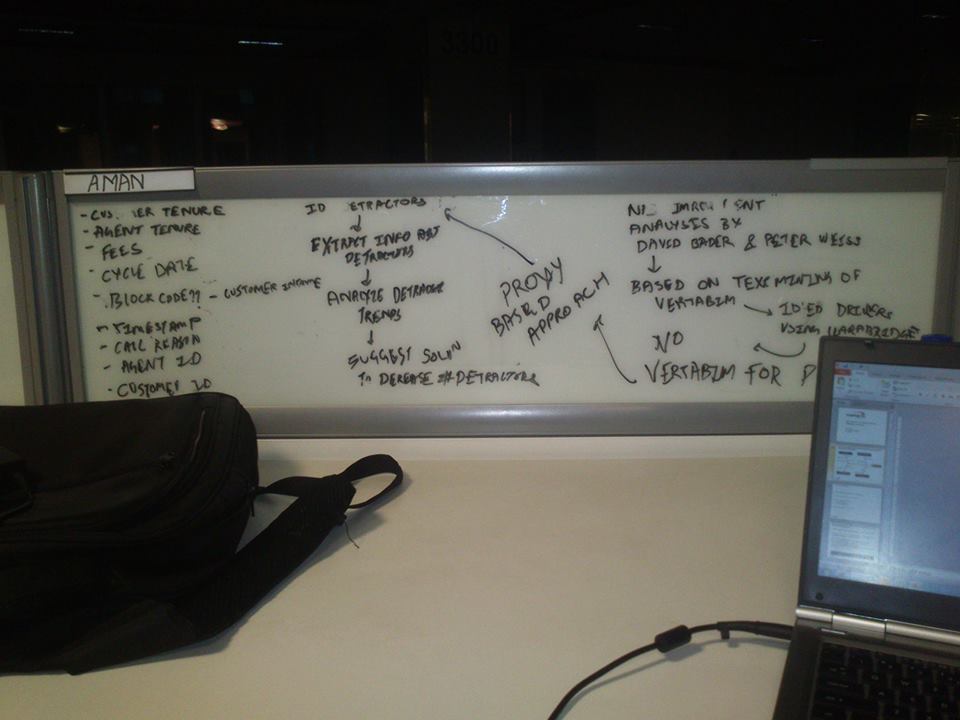Third year at Indian Institute of Technology, Kanpur turned out to be quite an eventful year for me. It was a year of many firsts, some of which I will cherish for the rest of my life. And I would place amazing internship experiences among those many firsts. To put things in perspective (and getting to the point of this article), I did a couple of internships in my third year at two fabulous places – GreenAlpha Power, a start-up integrating kickass financial engineering in the solar development business, and Capital One, the big-shot American credit card company. I would like to add that I also interned at the end of my second year where I had a, to be very brief, pathetic experience (and that, among other things, forms Intern Experience 1.0.)
So, giving respect to chronology (proximity bias did tempt me there to write about Capital One first), I start with GreenAlpha Power. It started with an email from SPO on a blurry day somewhere in the middle of endsems. I applied, telephonic interviews happened and a week later, I was on a train to Jaipur. Office comprised of a single room equipped with a table, few chairs, a bean bag, a couch, a whiteboard and internet connection. I was assigned the role of Market Research Analyst and was expected to prepare a tariff map of India. But my managers (and also the co-founders) were really cool to involve me in all the aspects of business. I also proactively took interest, shared ideas and provided suggestions (most of them turned out unfeasible but those discussions were simply enriching). Eventually, at the end of 25 days, in addition to the tariff map, I had worked on the financial model, legalities of business model and website development. To summarize, I would rate working in an early stage start-up as an essential business experience.
Coming to the important part – key takeaways. All of us have heard the management gurus talk about the importance of working with the right people. And my experience at GreenAlpha made me a staunch supporter of the argument; especially if it’s a start-up, people are as important as the idea itself. There were times when I was supposed to do extremely monotonous work, some other times my project was diametrically opposite to my areas of interest and expertise. But just because I was hanging around with cool people, I sailed through. Another thing that I found very useful was proactively taking interest in all the aspects of business – even if they are not related in any manner to your assigned project. I used to tag along even for the chai-sutta breaks (though I admire neither) just to be involved. You can see the pieces joining together and that opens avenues of relevance for any project.
Aman Pandya’s ID card at Capital One
Moving on to the summer intern now. I never really fancied a chance at Capital One (bless my CPI for that) until they announced that a DI test and not resumes would be used for short-listing. And even then, I wasn’t really excited about cracking the internship process. But I took the test, cleared the case studies and booked my tickets to Bangalore. There, a cosy service apartment and a swanky office spread over two storeys greeted me. Working hours were flexible, office had an open structure and culture was surprisingly cool. I was assigned to a team but had a project of my own, with complete ownership. It was the first time Capital One had interns for their India office and we were pampered accordingly. Treats and gifts were pouring in from all corners and there was negligible work pressure. For the first couple of weeks, I divided my time between networking, foosball and FIFA (yes, we had a dedicated PS3 room in the office.) Eventually, project work started moving and I was able complete all deliverables within the set timeframe. Overall, a pleasantly nice experience.
Aman Pandya’s office workdesk
The most pertinent realization from my internship at CapOne was the importance of structured communication. One may come up with excellent ideas, analysis or research but eventually, he/she needs to sell it to people. And that’s where communication and presentations come in. One needs to gauge his audience and modify his story language accordingly. For instance, I had tested around 15 hypotheses for my project at Capital One. But I included just 5 in my final presentation. Some were excluded just because they disrupted the flow and looked like loose ends. And even the way they were presented differed according to the audience. There were significant differences in the slides I presented to my manager and team and the ones I presented to VP and Senior Directors. Another key takeaway was to always keep the big picture in mind. Your work should be implementable and should have a positive impact on the company. Always. Otherwise all the hard work and time is of no practical use.
I conclude here with a hope that the readers found my insights helpful. Feel free to contact/meet me (a bottle of beer would be much appreciated. I prefer Heineken) and join me in the most honest disgust towards the pathetic Kanpur weather.
This article was written by Aman Pandya, fourth year undergraduate student in the Department of Economics at IIT Kanpur.
This article is a part of the thread My Internship Experience, as part of the Career Series to help and guide students in their internship and placement preparations.











































